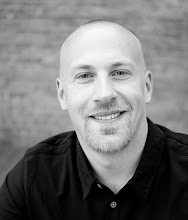What Christians Can Learn From A Bible-Belt Pastor Who Became An Atheist Leader
As his wife slept, he fumbled through the darkness for his laptop. After a few quick searches with the terms “pastor” and “atheist,” he discovered that a cottage industry of atheist outreach groups had grown up in the past few years. Within days, he joined an online network called the Clergy Project, created for clerics who no longer believe in God and want to communicate anonymously through a secure Web site.
DeWitt began e-mailing with dozens of fellow apostates every day and eventually joined another new network called Recovering From Religion, intended to help people extricate themselves from evangelical Christianity. Atheists, he discovered, were starting to reach out to one another not just in the urban North but also in states across the South and West, in the kinds of places DeWitt had spent much of his career as a traveling preacher. After a few months he took to the road again, this time as the newest of a new breed of celebrity, the atheist convert. They have their own apostles (Bertrand Russell, Richard Dawkins, Christopher Hitchens) and their own language, a glossary borrowed from Alcoholics Anonymous, the Bible and gay liberation (you always “come out” of the atheist closet).
DeWitt quickly repurposed his preacherly techniques, sharing his reverse-conversion story and his thoughts on “the five stages of disbelief” to packed crowds at “Freethinker” gatherings across the Bible Belt, in places like Little Rock and Houston. As his profile rose in the movement this spring, his Facebook and Twitter accounts began to fill with earnest requests for guidance from religious doubters in small towns across America. “It’s sort of a brand-new industry,” DeWitt told me. “There isn’t a lot of money in it, but there’s a lot of momentum.”
Not long ago, the atheist movement was the preserve of a few eccentric gadflies like Madalyn Murray O’Hair, whose endless lawsuits helped earn her the title “the most hated woman in America.” But over the past decade it has matured into something much larger and less cranky. In March of this year, some 20,000 people marched through a cold drizzle at the “Reason Rally” in Washington, billed as a political debut for the movement. A string of best-selling atheist polemics by the “four horsemen” — Hitchens and Dawkins, as well as Sam Harris and Daniel Dennett — has provided new intellectual fuel. Secular-themed organizations and clubs have begun to permeate small-town America and college campuses, helping to foot the bill for bus and billboard ad campaigns with messages like “Are You Good Without God? Millions Are.”
The reasons for this secular revival are varied, but it seems clear that the Internet has helped, and many younger atheists cite the Sept. 11 terrorist attacks as a watershed moment of disgust with religious zealotry in any form. It is hard to say how many people are involved; avowed atheists are still a tiny sliver of the population. But people....(read the rest of this article here)"
There is a lot here. But I just want to make a few observations:
- The problem of personal evil and suffering was a huge factor in his de-conversion (this was the case for Bart Ehrman as well).
- He had no one who shared his Christian convictions to honestly share his doubts with and that could help him process intellectually or emotionally.
- The article assumes that once he started "reading more broadly" and being 'rational', he began to move away from Christianity and lose his faith. The implied assumption is that thinking more means believing less. This is simply not true.
- He came from a highly emotional stream of Christianity. Emotions aren't bad; bud neither are they the appropriate foundation of faith. There is a difference between emotional doubt and intellectual doubt and they are not treated or resolved in the same way. (for more on dealing with doubt)
- The new atheism is not going away anytime soon. Christians need to be ready to engage and understand why they believe what they believe. Faith is not blind. But the Christian life does allow for honest doubts. However, we must have the courage to doubt our doubts and invite others who share our convictions in to help us process--not just let the darkness grow in isolation. Sean McDowell and I wrote a book to help Christians young and old to engage the honest questions raised by the new atheists. You can learn more about that here. Our prayer is that this resource will help you or a friend / family member on the journey of faith.
Labels: Christianity, doubt, God, New Atheism


0 Comments:
Post a Comment
Subscribe to Post Comments [Atom]
<< Home